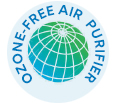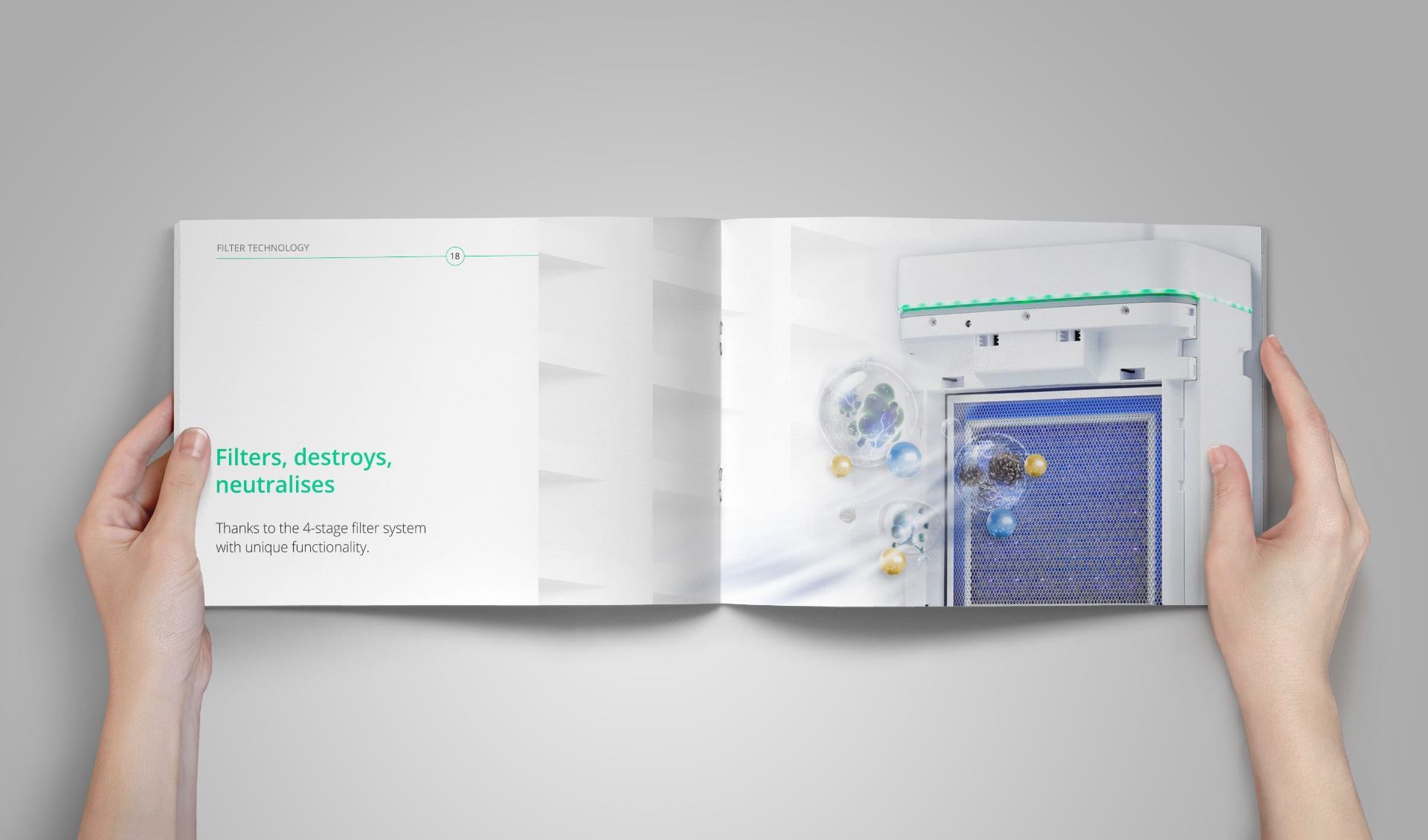Downloads
Trên trang này, bạn có thể kiểm tra dữ liệu sản phẩm, bằng chứng khoa học, dữ liệu nghiên cứu và các bài báo/tin tức. Chúng tôi luôn sẵn sàng tiếp nhận các câu hỏi từ các cơ quan truyền thông hoặc các đối tác kinh doanh.
CUỐN SÁCH NHỎ
Trình bày chung về sản phẩm có chứa các tính năng kỹ thuật và trường hợp sử dụng.
BẢNG DỮLIỆU
Tất cả các thông số kỹ thuật được kết hợp trong một tờ.
Bằng chứng khoa học
Thông cáo báo chí


AiroDoctor - Hệ thống lọc không khí cải tiến đã được chứng minh có thể tiêu diệt vi rút và vi khuẩn trong khí dung
Xuất bản lần đầu vào ngày: 23 tháng 3 năm 2020
Nghiên cứu & Báo cáo khoa học
National Institutes of Health, Hamilton, USA
Aerosol and surface stability of HCoV-19 (SARS-CoV-2) compared to SARS-CoV-1
National Academy of Sciences, USA
The airborne lifetime of small speech droplets and their potential importance in SARS-CoV-2 transmission
National Academy of Sciences, USA
Infectious virus in exhaled breath of symptomatic seasonal influenza cases from a college community
Université Laval in Québec, Canada
Clinical Infectious Diseases (2015; doi: 10.1093/cid/civ321) - Detection and Quantification of Airborne Norovirus During Outbreaks in Healthcare Facilities
Medical Research Institute, Chungbuk National University, Republic of Korea
Infection and Rapid Transmission of SARS-CoV-2 in Ferrets
Nature Research Journal
Aerosol emission and superemission during human speech increase with voice loudness
New England Journal of Medicine
Aerosol and Surface Stability of SARS-CoV-2 as Compared with SARS-CoV-1
JAMA Network - American Medical Association
Turbulent Gas Clouds and Respiratory Pathogen Emissions Potential Implications for Reducing Transmission of COVID-19
Science Mag - American Association For The Advancement of Science
Respiratory infections occur through the transmission of virus-containing droplets (>5 to 10 μm) and aerosols (≤5 μm) exhaled from infected individuals during breathing, speaking, coughing, and sneezing.
Báo chí quốc tế
The Economist
A new study shows that SARS-CoV-2 can linger in the air for hours and on some materials for days
Pulse News Korea
The Convergence for Emerging Virus Infection (CEVI) Research Group at the Korea Research Institute of Chemical Technology finds neutralizing antibodies against COVID-19
Business Insider
You're most likely to catch the coronavirus after other infected people cough, sneeze, or talk near you
Naver South Korea
Seung-Hun Han President of Ki-Yeon Gun "Let's put it in school, air conditioner and air cleaner to kill corona"
NBC
6 feet enough for social distancing? MIT researcher says droplets carrying coronavirus can travel up to 27 feet
Tổ chức công cộng
Italia Ministry of Health
How is the new Coronavirus transmitted from person to person?
The new Coronavirus is a respiratory virus that spreads mainly through close contact with a sick person. The primary route is the breath droplets of infected people through, for example:
- saliva, coughing and sneezing
- direct personal contacts
- hands, e.g. touching with contaminated (not yet washed) mouth, nose or eyes
What is the definition of close contact?
The "close contact" (high risk exposure) of a probable or confirmed case is defined as:
(...)
a person who has had direct (face-to-face) contact with a COVID-19 case, at a distance of less than 2 metres and at least 15 minutes
a person who has been in a closed environment (e.g. classroom, meeting room, hospital waiting room) with a COVID-19 case in the absence of suitable PPE
(...)




SCIENTIFICALLY VERIFIED






IN THE MEDIA




 Việt Nam
Việt Nam
 English
English
 Deutsch
Deutsch
 Français
Français
 Italiano
Italiano
 Español
Español
 繁體中文
繁體中文
 한국어
한국어






